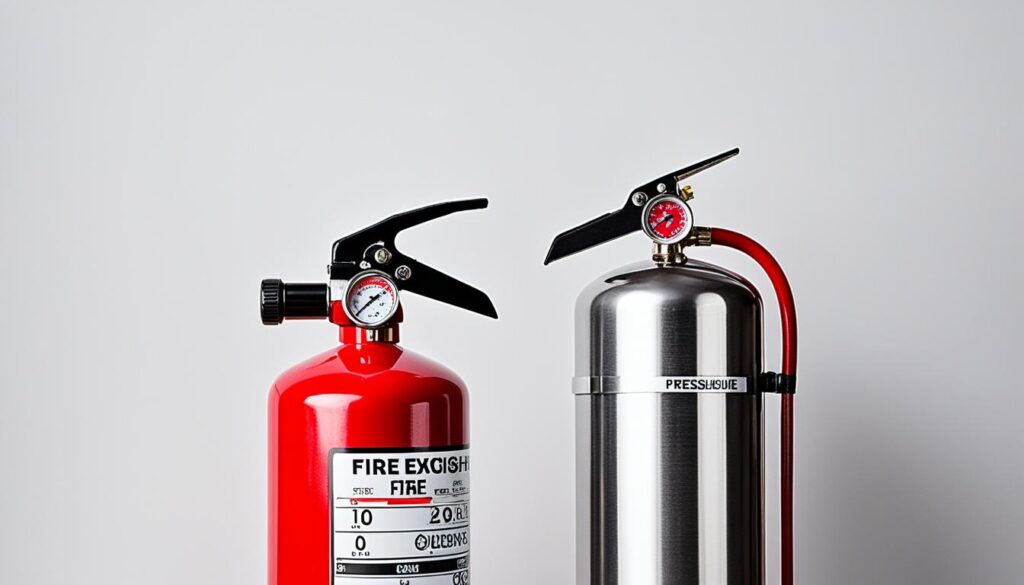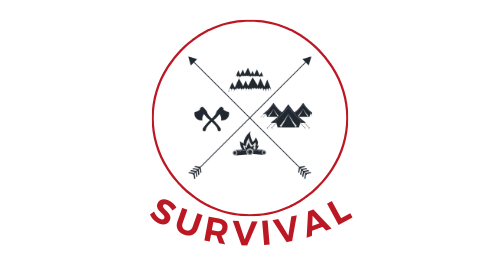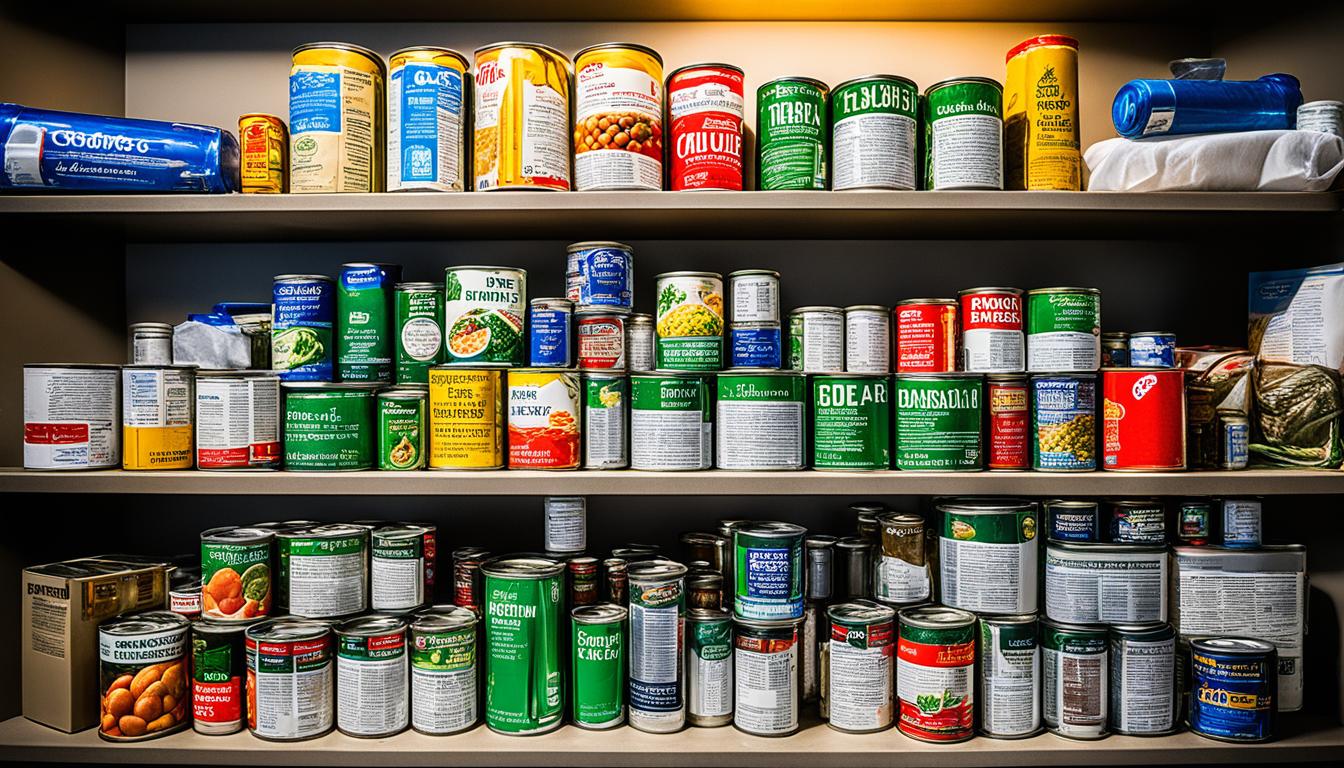Being prepared for an economic collapse is crucial for ensuring your safety and resilience during tough times. In this article, I will provide you with a comprehensive list of essential supplies to have on hand. This list is based on factual data from various sources and covers a range of items that are necessary for surviving an economic collapse.
Key Takeaways:
- Stock up on emergency preparedness supplies to ensure safety and resilience during an economic collapse
- Create a survival kit with essential items such as water, non-perishable food, a radio, flashlight, and a first aid kit
- Consider the unique needs of your family and include supplies for pets or seniors
- Maintain proper sanitation and hygiene with personal hygiene items and supplies for personal sanitation
- Ensure you have proper shelter and clothing, including sleeping bags, warm blankets, and sturdy shoes
Building an Emergency Supply Kit
One of the most important steps in preparing for an economic collapse is building an emergency supply kit. This kit should contain a collection of basic items that your household may need in the event of an emergency. It should include supplies such as water, non-perishable food, a radio, flashlight, first aid kit, extra batteries, and more. It is essential to consider the unique needs of your family, including supplies for pets or seniors.
- Water: store at least one gallon per person per day for drinking and sanitation purposes.
- Non-perishable food: choose items that have a long shelf life, such as canned goods, dehydrated foods, and survival food kits.
- Radio: a battery or hand-cranked radio can keep you updated on the latest news and emergency broadcasts.
- Flashlight: a reliable flashlight is essential for navigating in the dark during power outages.
- First aid kit: include essential medical supplies like bandages, antiseptics, and medications.
- Batteries: have extra batteries for your electronic devices and flashlights.
- Pet supplies: if you have pets, include food, water, and any necessary medications.
- Senior supplies: consider any specific needs for elderly family members, such as medication or mobility aids.
Water and Food Supplies
In an economic collapse, access to clean water and non-perishable food can become limited. As such, it is crucial to prioritize the procurement and storage of these essential supplies. One of the first steps is to ensure an emergency water purification system is in place. This will allow you to have a sufficient supply of safe drinking water, even in the absence of reliable sources.
Emergency water purification is vital for survival in any crisis situation.
Stocking up on non-perishable food items is equally important, as these can provide sustenance for several days or weeks. Consider options such as canned goods, dehydrated foods, and survival food kits that have a long shelf life and require no refrigeration.
Having a well-rounded non-perishable food supply is essential for survival during economic collapse.
While it is tempting to rely solely on processed foods, it is essential to include nutritious options that provide adequate sustenance. Here is a comprehensive table that outlines some recommended non-perishable food items:
| Food Item | Shelf Life | Benefits |
|---|---|---|
| Canned beans | 2-5 years | Good source of protein and fiber |
| Peanut butter | 2+ years | High in calories and healthy fats |
| Oats | 1-2 years | Excellent source of fiber |
| Rice | Indefinite | A versatile staple with a long shelf life |
| Dried fruits | 1 year+ | Provides essential vitamins and minerals |
| Jerky | 1-2 years | High in protein and portable |
By diversifying your non-perishable food supply, you can ensure a balanced diet even in dire circumstances. Remember to regularly check expiration dates and rotate items to maintain freshness.
Emergency Essentials
In addition to water and food supplies, there are several other essential items you should have in your emergency kit. These include a first aid kit, emergency tools and supplies, and communication equipment. Let’s take a closer look at each of these items:
1. First Aid Kit
A well-stocked first aid kit is vital in any emergency situation. It should contain essentials such as bandages, antiseptic wipes, adhesive tape, gauze pads, tweezers, scissors, and pain relievers. Make sure to regularly check and replenish your first aid kit to ensure all items are up to date.
2. Emergency Tools and Supplies
Having the right tools can make a significant difference during an emergency. Include items such as a wrench or pliers to turn off utilities, a multipurpose tool, duct tape, a whistle for signaling, a dust mask for respiratory protection, and a flashlight with extra batteries.
3. Communication Equipment
During an emergency, the ability to communicate with emergency services, family, and friends is vital. Include a cell phone with chargers and a backup battery in your emergency kit. It’s also essential to have a battery-powered or hand-cranked radio to stay informed about the situation and receive emergency updates.
Having these essential items in your emergency kit will ensure you are prepared for a wide range of scenarios. Whether it’s administering first aid, fixing utilities, or staying connected, these supplies will help you navigate through challenging times.
| Emergency Essentials | Description |
|---|---|
| First Aid Kit | A comprehensive first aid kit with essentials like bandages, antiseptic wipes, and pain relievers. |
| Emergency Tools | Tools such as a wrench, pliers, multipurpose tool, duct tape, whistle, dust mask, and flashlight. |
| Communication Equipment | Cell phone with chargers, backup battery, and a battery-powered or hand-cranked radio. |
Sanitation and Hygiene Supplies
Maintaining proper sanitation and hygiene is crucial during an economic collapse. It’s important to prioritize personal cleanliness and ensure access to essential hygiene items. Here are some key supplies to include in your emergency kit:
- Dry and wet wipes: These are versatile and practical for personal sanitation needs.
- Garbage bags and plastic ties: These can be used to dispose of waste properly and maintain cleanliness.
- Feminine supplies: Stock up on sanitary pads or tampons to ensure comfort and hygiene.
- Hand sanitizer: Promote hand hygiene and reduce the risk of infection.
- Soap: Have an adequate supply of soap for effective handwashing.
- Disinfecting wipes: Use these wipes to clean surfaces and maintain a clean environment.
In addition to these essentials, consider including other personal hygiene items such as toothpaste, toothbrushes, and shampoo. It’s crucial to prioritize personal well-being to stay healthy and maintain a sense of normalcy during challenging times.
| Sanitation and Hygiene Supplies | Type | Quantity |
|---|---|---|
| Dry and wet wipes | Personal sanitation | 10 packs |
| Garbage bags and plastic ties | Sanitation | 5 rolls |
| Feminine supplies | Hygiene | 3 months’ worth |
| Hand sanitizer | Hygiene | 5 bottles |
| Soap | Hygiene | 10 bars |
| Disinfecting wipes | Hygiene | 5 packs |
Shelter and Clothing
In the event of an economic collapse, it is crucial to have proper shelter and clothing to ensure your safety and well-being. Here are some essential items you should consider:
Sleeping Bags
- A sleeping bag provides warmth and comfort, especially during cold nights. Make sure to have a sleeping bag or warm blanket for each person in your household.
Warm Blankets
- Warm blankets are essential for staying cozy and maintaining body temperature in challenging situations. Stock up on thick, insulating blankets to provide extra comfort and protection.
Change of Clothing
- Having a complete change of clothing for each person is important to stay clean and comfortable. Ensure that the clothing is suitable for the climate you live in and consider layering options for adaptability.
Sturdy Shoes
- Sturdy shoes are essential in case you need to navigate difficult terrain or walk long distances. Choose shoes that are comfortable, durable, and suitable for outdoor activities.
Remember, being prepared with sleeping bags, warm blankets, a change of clothing, and sturdy shoes can significantly enhance your comfort and safety during an economic collapse.
Additional Emergency Supplies
When preparing for an economic collapse, it’s important to go beyond the basic essentials and consider additional emergency supplies. These items can help ensure your safety and well-being during challenging times.
Fire Extinguisher
One crucial item to have on hand is a fire extinguisher. Fires can quickly spread and cause significant damage, so having a fire extinguisher readily available can help you prevent disasters and protect your property.
Matches in a Waterproof Container
Matches are another essential tool for your emergency preparedness kit. They can be used for various purposes, such as starting a fire for warmth or cooking. Make sure to store matches in a waterproof container to keep them dry and usable in any weather condition.
Medical Supplies
In times of crisis, access to medical care may be limited. Therefore, it’s crucial to have medical supplies on hand to address minor injuries and illnesses. A well-stocked first aid kit is a must-have emergency item. Additionally, ensure you have an ample supply of prescription medications for any ongoing health conditions.
Cash or Traveler’s Checks
In the event of an economic collapse, access to financial institutions or electronic payment systems may be disrupted. Having cash or traveler’s checks on hand can provide you with a means of purchasing essential items when other forms of payment are unavailable. Keep these funds in a safe place, such as a waterproof container or a portable safe.
Important Family Documents
It’s essential to safeguard important family documents during an economic collapse. Copies of insurance policies, identification documents, and other vital records should be saved electronically or kept in a waterproof container. This way, you’ll have access to critical information even if physical documents are damaged.

Barter Items for Survival
In an economic collapse, bartering can become a valuable trade method. When traditional currency loses its value, having barter items can help you acquire essential supplies and services. Here are some high-value barter items to consider:
1. Non-Perishable Food Items
Food is a basic necessity, and non-perishable items will always be in demand. Stock up on canned goods, dried fruits, nuts, and other long-lasting food items that can provide sustenance during difficult times.
2. Water Filtration Systems
Clean drinking water is essential for survival. Water filtration systems, such as portable water purifiers or filters, can be valuable barter items. They ensure access to safe drinking water, even when the regular water supply is compromised.
3. Firestarting Materials
Fire provides warmth, cooking capabilities, and a sense of security. Stockpile firestarting materials like matches, lighters, and fire starters. These items can be exchanged for other goods or services.
4. Shelter Supplies
During an economic collapse, the importance of shelter increases. Consider stockpiling extra tents, tarps, sleeping bags, and blankets. These items can provide temporary shelter and protection from the elements.
5. Clothing and Footwear
Having appropriate clothing and footwear for different weather conditions is crucial. Extra coats, jackets, durable pants, and sturdy shoes can be valuable barter items that help people stay warm and protected.
6. Tools and Weapons
Tools and weapons have practical value during survival situations. Items like knives, axes, multi-tools, and firearms can be in demand for various purposes such as self-defense, hunting, or repairing essential equipment.
7. Medical Supplies
Access to medical care may be limited during an economic collapse. Stockpiling medical supplies such as first aid kits, bandages, antibiotics, and over-the-counter medications can be helpful in meeting people’s healthcare needs.
8. Communication Equipment
Communication becomes essential when other systems fail. Consider having extra two-way radios, walkie-talkies, or portable ham radios. These devices can help facilitate communication with others when traditional means are disrupted.
9. Precious Metals
Investing in precious metals like gold, silver, and platinum can provide a store of value and serve as a form of currency during uncertain times. Their intrinsic worth and universal acceptance make them highly sought after as barter items.
Remember, the value of barter items can vary based on local conditions and individual needs. It’s essential to assess the demands of your community and have a diverse range of items to maximize their potential for bartering.
Remember, the value of barter items can vary based on local conditions and individual needs. It’s essential to assess the demands of your community and have a diverse range of items to maximize their potential for bartering.
Financial Preparedness
Financial preparedness is crucial for surviving an economic collapse. To ensure your stability during tough times, it’s important to take proactive measures and establish a solid financial foundation. Here are some key strategies:
1. Emergency Fund
Building an emergency fund is essential. This fund serves as a financial safety net and can cover your expenses for several months. Aim to save at least three to six months’ worth of living expenses. Having an emergency fund provides peace of mind and ensures that you can meet your basic needs even during a crisis.
2. Cash on Hand
Keeping cash on hand is another critical aspect of financial preparedness. In an economic collapse, access to banking services or electronic transactions may become limited or unstable. Having cash readily available allows you to make immediate purchases or handle unexpected expenses without relying solely on electronic payment methods.
3. Additional Source of Income
Generating an additional source of income can provide stability and security during an economic collapse. Consider exploring opportunities to start a home-based business or pursue freelance work in your area of expertise. Diversifying your income streams not only provides financial resilience but also presents opportunities for personal and professional growth.
4. Getting Out of Debt
Getting out of debt is a crucial step towards financial preparedness. High levels of debt can significantly impact your financial security and limit your ability to respond effectively to an economic crisis. Develop a debt payment plan and focus on reducing or eliminating outstanding balances. This will enhance your financial flexibility and allow you to allocate resources towards other essential needs.
By implementing these financial strategies, you can enhance your resilience and ensure you have the resources necessary to weather an economic collapse. It’s important to start taking these steps as early as possible to secure your financial well-being.

Water and Food Storage
In an economic collapse, access to clean water and food can be uncertain. It is crucial to prioritize emergency water storage and stockpiling non-perishable food items. By taking these steps, you can ensure the availability of essential resources during challenging times.
Emergency Water Storage
During an economic collapse, water scarcity can become a significant concern. It is essential to have a sufficient supply of clean water for drinking, cooking, and sanitation purposes. Ideally, you should store at least one gallon of water per person per day for a minimum of three days. This ensures that you have enough water to meet your basic needs until the situation stabilizes.
Stockpiling Non-Perishable Food
When it comes to stockpiling food, focus on non-perishable items that don’t require refrigeration. These foods have a longer shelf life and can sustain you during times of scarcity. Consider including items such as canned goods, dried fruits, nuts, granola bars, pasta, rice, and other long-lasting staples in your emergency food supply.
It is also essential to regularly rotate your stockpile to ensure that the food remains fresh and edible. Keep track of expiration dates and consume and replace items as needed to maintain a reliable food supply.
Starting a Garden
In addition to storing water and food, another sustainable approach to ensure a constant supply of fresh food is to start a garden. Having a garden not only provides you with nutritious fruits, vegetables, and herbs but also offers a sense of self-sufficiency during uncertain times.
Choose a suitable spot in your yard or consider container gardening if space is limited. Research and select crops that are well-suited to your region and climate, ensuring high-yield and low-maintenance varieties. Invest in quality soil, fertilizer, and necessary tools to maximize your garden’s potential.
Remember to consider seasonal planting and plan accordingly to ensure a year-round harvest. You can also learn preservation techniques such as canning and drying to make your produce last longer.
By combining emergency water storage, stockpiling non-perishable food, and starting a garden, you can greatly enhance your preparedness for an economic collapse. These measures provide you with the essential resources to sustain yourself and your family during challenging times.
| Emergency Water Storage | Stockpiling Non-Perishable Food | Starting a Garden |
|---|---|---|
| Store at least one gallon of water per person per day | Focus on non-perishable items | Choose a suitable spot for planting |
| Minimize exposure to sunlight and contamination | Consider canned goods, dried fruits, and rice | Select crops suited to your region |
| Regularly rotate and replace stored water | Track expiration dates and consume and replace | Invest in quality soil, fertilizer, and tools |
Creating an Emergency Kit
Creating an emergency kit is a crucial step in preparedness, alongside stocking up on water and food supplies. Your emergency kit should include a variety of essential items to help you navigate through challenging situations. Here are some key items to include:
1. Household Emergency Supplies
Ensure you have the following household emergency supplies in your kit:
- Extra car keys: Always have a spare set of car keys in your emergency kit to avoid being stranded.
- Blankets: Include warm blankets to provide comfort and protection in case you need to stay outdoors or in a vehicle overnight.
- Multi-use tool: A versatile tool like a Swiss Army knife can come in handy for various tasks in emergency situations.
- Maps: Have updated physical maps of your local area and any potential evacuation routes.
2. Illumination and Communication
Include the following items for illumination and communication needs:
- Flashlight: A reliable flashlight should be in your emergency kit, along with extra batteries or a hand-cranked option.
- Battery-powered or hand-cranked radio: Stay informed with a radio that can provide news updates and emergency alerts.
3. Personal Items and Documents
Don’t forget to pack these personal items and documents:
- Medications: Keep a supply of necessary medications for each member of your household in your emergency kit.
- Copies of important documents: Make copies of essential documents like identification, insurance policies, passports, and birth certificates. Store them in a waterproof container or use a digital backup.
4. First Aid and Medical Supplies
First aid and medical supplies are crucial for addressing injuries and maintaining health during emergencies. Include the following items in your emergency kit:
- First aid kit: Stock a comprehensive first aid kit with supplies like bandages, antiseptic wipes, adhesive tape, pain relievers, and any necessary prescription medications.
- Basic survival medicines: Consider including over-the-counter medications for common illnesses such as cold and flu, as well as any necessary prescription medications for chronic conditions.
5. Visual Aid
For visual aid during emergencies, include the following item:
- A printed list of emergency contact numbers: In situations where a mobile phone might not be available or have battery power, having a printed list of emergency contact numbers can be invaluable.
Remember, these are just some of the essential items to include in your emergency kit. Customize your kit based on your family’s unique needs and consider any additional items that may be necessary for your specific situation.
| Item | Description |
|---|---|
| Extra car keys | To avoid being stranded |
| Blankets | For warmth and protection |
| Multi-use tool | For various tasks |
| Maps | For navigation and evacuation routes |
| Flashlight | For illumination |
| Battery-powered or hand-cranked radio | For receiving emergency information |
| Medications | For personal health needs |
| Copies of important documents | For identification and documentation purposes |
| First aid kit | For addressing injuries |
| Basic survival medicines | For common illnesses and chronic conditions |
| A printed list of emergency contact numbers | For communication in case of mobile phone unavailability |
Conclusion
In summary, being prepared for an economic collapse is essential for ensuring your safety and well-being during challenging times. By gathering essential supplies that cover all aspects of your needs, you can enhance your resilience and increase your chances of survival. It is crucial to have a sufficient supply of water and non-perishable food, as well as emergency tools, sanitation and hygiene items, shelter and clothing, additional emergency supplies, and barter items. Financial preparedness, including having an emergency fund and reducing debt, is also important.
Moreover, storing water and food, either through emergency water storage or stockpiling non-perishable items, can provide peace of mind in uncertain times. Creating an emergency kit with household essentials and first aid and medical supplies is another critical step. By taking these necessary precautions, you can better protect yourself and your family.
In conclusion, the importance of preparedness cannot be overstated. It is crucial to anticipate and plan for the possibility of an economic collapse. By prioritizing essential supplies and taking proactive steps, you can navigate through such challenging times with greater resilience and ensure the well-being of yourself and your loved ones.

